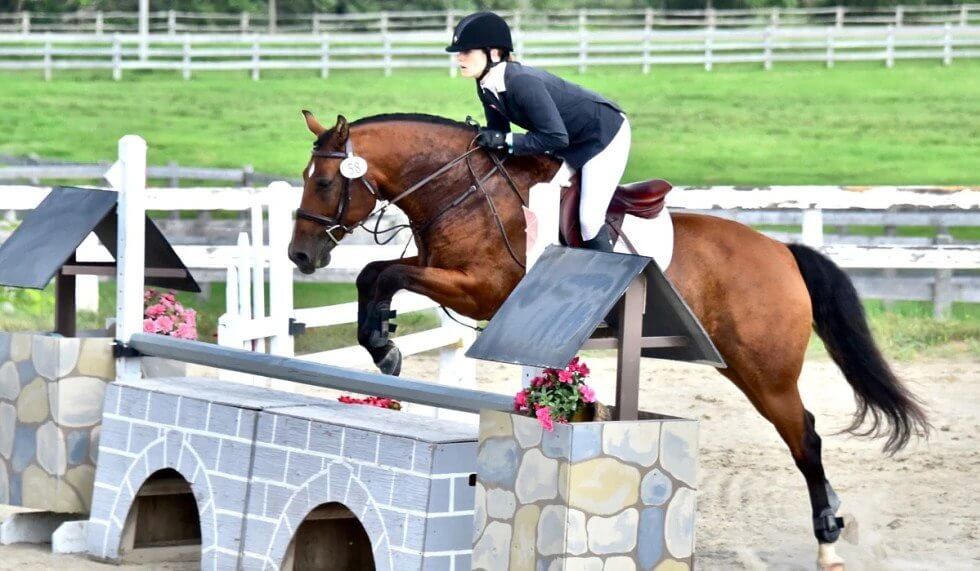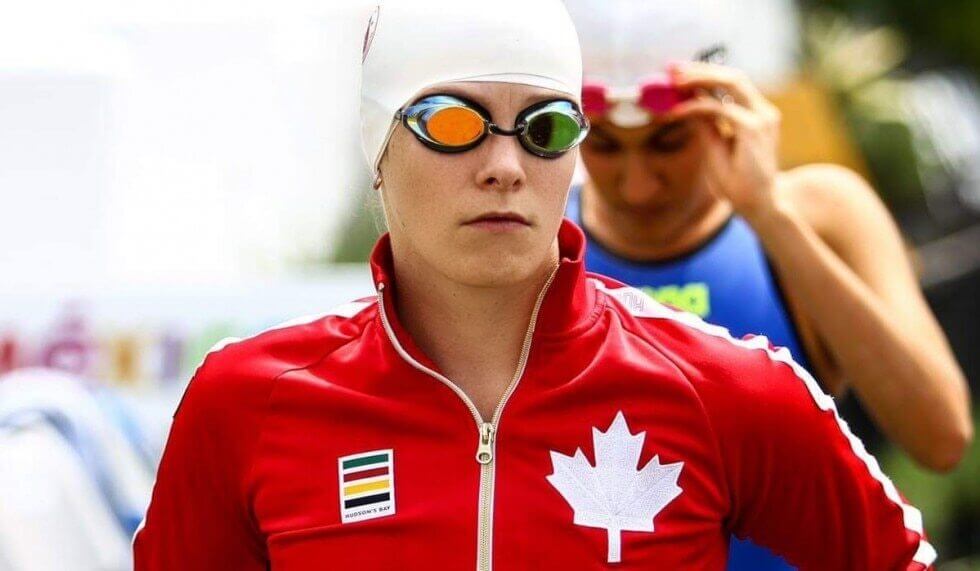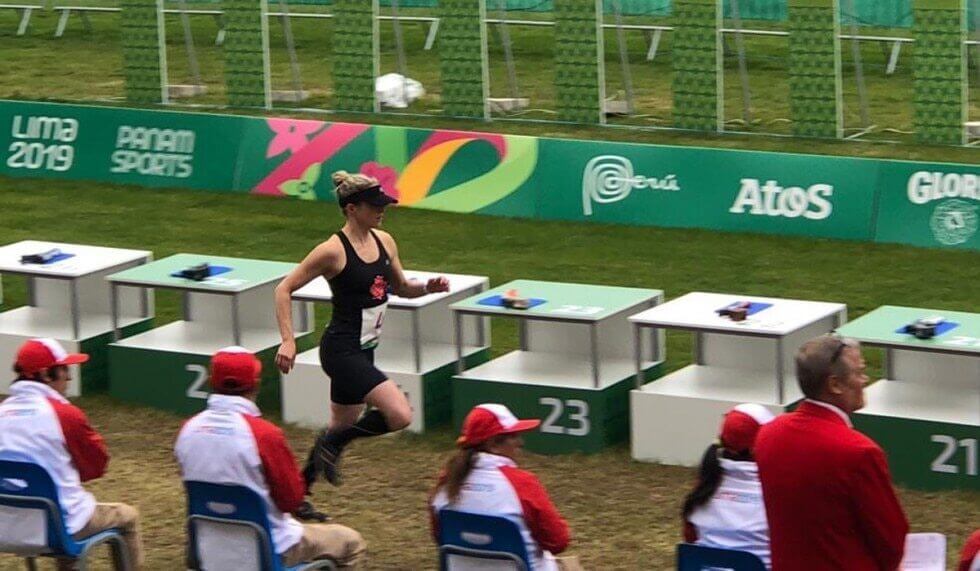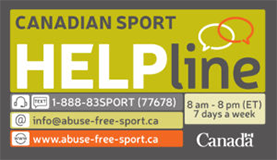Modern pentathlon, ancient ideals
‘COVID-19 is forcing all of us to be resourceful and resilient’
DATE: April 8th 2020
Source.<
Athletes, coaches and teams around the world are grappling with uncertainty as I write this.
From Olympic variables to training in self isolation, changing qualifier dates, lost funding, lost jobs, lost travel opportunities. The challenges seem insurmountable for Olympic and Paralympic athletes during this pandemic. But the passion in the sporting community burns on. Why is that? We have all faced adversity. Events that push our boundaries can define who we are. The current situation has me thinking about performance, not necessarily in the sporting arena, but amidst fear of the unknown…
“Hey Mom and Dad. So… I’ve had a horse jumping accident and I’m in the Guelph General hospital. I don’t know what the status is … but I can’t move without pain.” I was trying to sound as calm as possible, knowing full well how such a call would terrify any parent.

Kelly Fitzsimmons clears a jump at the Canadian Nationals. (Submitted by Hans Schols)
It was June 2012. Two weeks earlier, I left my life in Calgary–family, friends, condo, stable job, and flew across the country to Toronto to try to take my professional and athletic careers to new levels. As a modern pentathlete in Canada, working full-time is pretty much a necessity. Even for national team members, all training and competition costs are the responsibility of the athlete. In a five-discipline sport, those costs add up.
Modern pentathlon is often described as a one day competition for the all round athlete of the games. The original Olympic pentathlon epitomized the skills of a Spartan Warrior. With time, pentathlon evolved to mirror the strengths of the cavalry soldier–the field officer who requires all the tools and tricks to get across the perils of a battlefield and deliver a message. Fencing, swimming, horse jumping (on an unfamiliar horse), shooting and running (today the shooting and running are combined in the laser-run) are the core disciplines now.

Fitzsimmons completes the swim portion at the Union Internationale de Pentathlon world championships, 2018 (Submitted by Kelly Fitzsimmons)
Relocating to Toronto was both exciting and scary, which is the perfect mix for pushing boundaries. But here I was in a hospital bed, unable to move, alone in a strange place, without money, one contact lens in my eye, having lost the other, in the ordeal, and unsure what was going to happen next. “Just breathe.” I told myself, “One step at a time, and let’s see (with the one good eye) what’s the smallest thing I can do today, to make a difference?” This become my mantra as I learned to move again.
After multiple X Rays and CT scans, the orthopedic surgeon was speechless. I’d escaped without a fracture. Both of my hips, he said, “should have been shattered.” I have above average bone density, so my luck was genetic. But the result was still a nearly severed hip flexor and a long road back to sport.
Since I was still an Alberta resident, I returned to Calgary to rehab. I was immediately flooded with family and friends concerns. “Clearly you aren’t going to do pentathlon anymore!” and, “I guess that’s it for Toronto.” With each well-meaning remark, my heart sank further. But I didn’t want other people’s fear of the unknown to sway my embrace of new opportunities. Most people think it is far too risky to give up a stable life in pursuit of one of the world’s more enigmatic sports. But the challenge fed my fire, and something told me to trust my gut and go for it.
By the end of summer 2012, I flew back to Toronto, got a consulting job with a global agency, and focused on my healing. Over the next few years, I made my way up the sporting and professional ladders. Working and training side by side was central to the plan. Although Pentathlon Canada has a history of qualifying athletes for Olympic games, it is not currently one of the National Sport Organizations recognized by Sport Canada’s funding framework program. This limits easy access to government resources such as ‘carding‘ and Sport Institute programs. So, self-funding, crowdfunding and support from the independent organization CanFund are all crucial.
As a working athlete, I split my time between training facilities and offices, delighting in the cultures of both worlds. I began working with companies and startups on foresight projects. Working on big questions like, “what is the future of X?” and prototyping ideas that could eventually go to market. Oddly, business and athletic choices were often based on the same challenges. What can we do today? How do we build this? How do we fund this? Will this work? Will this fail? What is the risk? What if this happens? What do we do next?

Fitzsimmons competing at the 2019 Pan Am games in Lima (Submitted by Kelly Fitzsimmons)
I began to see that pentathlon’s training of the all-round soldier or athlete to face the unknown is just as relevant now as it was in ancient Greece. In pentathlon, business and life, we all face uncertainty, which rewards problem solving, equanimity, endurance, resilience, curiosity, creativity, resourcefulness and adaptability.
During this pandemic, people around the world are adapting to the unknown by engaging these very same skills. COVID-19 is forcing all of us to be resourceful and resilient. In athletic communities, people are finding ways to continue training. Swimmers are using dryland exercise. Athletes from all sports are sharing ideas and staying motivated by livestreaming home setups for strength work. Fencers are sparring with homemade dummies. Coaches and clubs are finding virtual ways to help keep their members active. Beyond sport, companies are adapting to remote working and families are faced with balancing home offices and home schooling. The changes are difficult and they arrive fast, but we are adapting creatively.
It’s easy to be overwhelmed by trying to look too far into the future. We don’t know what lies ahead, what we are training for, or when. But we do know what fuels us and gives us hope. For many of us, it’s sport. When our passion is ignited, we override fears, rewrite our own algorithms, get creative, and adapt. The important thing for all of us is to be kind to ourselves and each other, breathe, and ask yourself–what’s the smallest thing that I can do today to make a difference?
The Kelly Fitzsimmons edition
Q: The best book you’ve read?
A: Charlie and the Chocolate Factory by Roald Dahl (I have an original copy) & Man’s Search for Meaning by Viktor Frankl
Q: Must-listen podcast?
A: How I Built This with Guy Raz & Dan Carlin’s Hardcore History
Q: Best advice you ever received?
A: “Sometimes you have to let a horse be a horse” – my Dad.
Q: If your life is a movie, what would it be called?
A: ‘Adventures of a Professional Generalist’. It would be a live-action animated film.
Q: Word or phrase you over use?
A: “Our words matter” You got this!” (internal and external monologue). But in text messages… the ‘sweat-smile’ emoji.
Q: Skill you wish you had?
A: An incredible singing voice.
Q: Something no one would guess about you?
A: I like lazy days. And I don’t like rules..
Q: What scares you?
A: Black Holes.
Q: Who gets an invite to your ultimate influential dinner party?
A: My family! They are all entertaining and great chefs (especially my brother, Cody). They live far away and I don’t get to have dinner with them nearly enough.
Q: What makes you cry, every time?
A: Paddington 2
Q: Next goal?
A: Build something new.

 creation
creation